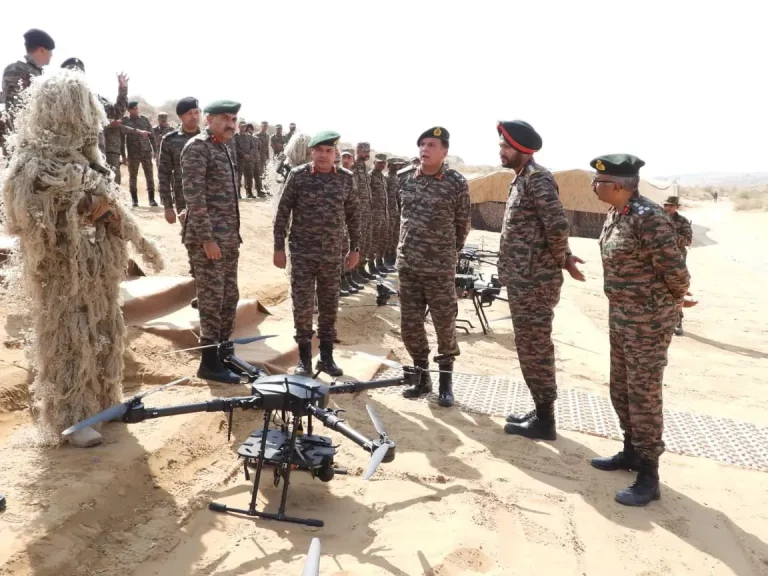Reports from reliable sources indicate that General Asim Munir, Pakistan’s Army Chief, has taken refuge in a nuclear bunker at the General Headquarters (GHQ) in Rawalpindi, following a noticeable absence from public view since April 24. This significant development comes at a time of heightened tensions between India and Pakistan, catalyzed by a recent terror attack in Pahalgam, Jammu and Kashmir, which resulted in the deaths of 26 individuals and has been directly attributed to Pakistan by the Indian government.
The Pahalgam incident, described as a premeditated act of terror, has elicited a strong response from Indian officials, including Prime Minister Narendra Modi, who promised a “befitting reply” to the perpetrators. Indian media reports suggest that the government is considering various diplomatic and military options, similar to its responses to previous attacks, such as those in Uri and Pulwama in 2016 and 2019, respectively. The attack specifically targeted tourists in the picturesque Baisaran area, often referred to as the “mini Switzerland” of Kashmir, and has rekindled the long-standing hostilities between the two nuclear-armed nations.
Further complicating the regional security landscape, on April 25, the Indian Air Force mistakenly dropped a non-explosive aerial store during a routine operation near Shivpuri, Madhya Pradesh. Fortunately, there were no casualties, but the incident has intensified concerns about regional stability and likely contributed to General Munir’s decision to seek refuge in a fortified bunker. Sources indicate that the Pakistani military leadership is bracing for potential Indian retaliation, especially considering the historical context of military skirmishes following such attacks.
The ongoing Kashmir conflict—a territorial dispute stemming from the 1947 partition of India—has led to several wars between the two nations, with significant conflicts occurring in 1947, 1965, and 1999, all initiated by Pakistan, according to historical records. This region remains a flashpoint, with previous ceasefire agreements, such as the one reached in 2021, proving fragile against the backdrop of recurrent violence. Analysts suggest that General Munir’s retreat to a nuclear bunker may reflect fears of an immediate Indian military response, possibly including a limited war—a scenario that the Pakistani military establishment has long prepared for but has sought to avoid.
Domestically, Pakistan’s military is under increasing pressure, with reports suggesting that General Munir’s leadership is becoming increasingly unpopular amid economic challenges and internal dissent. The Pahalgam attack, alleged by Indian officials to involve Pakistan’s Special Services Group (SSG) commandos masquerading as terrorists, has further strained the already fragile relations. India’s decision to suspend the Indus Waters Treaty in response to the attack has been characterized by some Pakistani officials as an “act of war,” thus escalating the ongoing diplomatic standoff.
As the situation develops, the international community is closely monitoring the dynamics between these two nuclear powers, concerned about possible escalation. For now, reports of General Munir’s retreat into a nuclear bunker underscore the seriousness of the current crisis, raising crucial questions about Pakistan’s next steps and India’s anticipated reactions amid this longstanding and volatile conflict.







